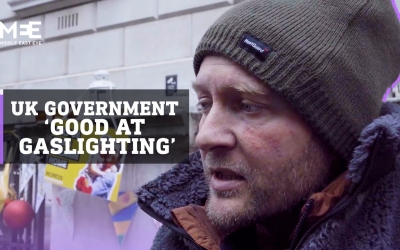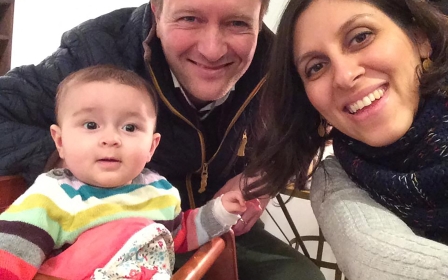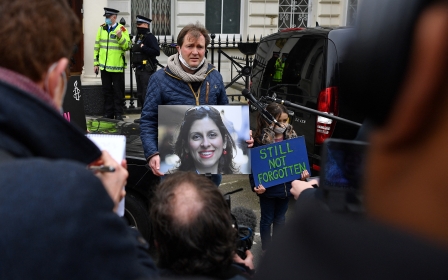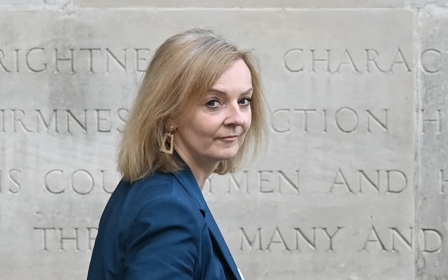Iran: Husband of Nazanin Zaghari-Ratcliffe ends 21-day hunger strike
The husband of Nazanin Zaghari-Ratcliffe has ended his hunger strike outside the UK Foreign Office after 21 days of protest, activists said on Saturday.
Richard Ratcliffe went on hunger strike on 24 October to highlight the British government’s inaction over his wife’s continued detention in Iran that began in 2016.
In a post on Twitter, Ratcliffe stated his reasons for ending the hunger strike, his second since 2018.
"Today I have promised Nazanin to end the hunger strike. Gabriella needs two parents. Thank you all for your overwhelming care these past three week," he wrote on the account #FreeNazanin, adding that he would go to the hospital for a full check-up.
New MEE newsletter: Jerusalem Dispatch
Sign up to get the latest insights and analysis on Israel-Palestine, alongside Turkey Unpacked and other MEE newsletters
Zaghari-Ratcliffe, a British-Iranian dual national, was arrested in 2016 as she was leaving Iran after taking her then 22-month-old daughter Gabreilla to visit her family.
Zaghari-Ratcliffe has always strenuously denied the spying charges levelled against her by Iran.
'Gaslighting'
Speaking to Middle East Eye earlier this week, Ratcliffe accused the UK government of 'gaslighting' over his wife's imprisonment, prompting him to stage the hunger strike.
"It’s very good at claiming it’s doing things that it isn’t. I think it’s perfectly clear after five and a half years that their approach is unsuccessful.”
“The reason [for the hunger strike] was twofold. One, because the British government wasn’t willing to do anything to challenge Iran’s actions; and two, because the whole approach to getting her home has been a spectacular failure, and I felt they needed to be reminded.
“We’re caught in a fight between two states, both culpable. So, I’ve ended up now, sitting on the pavement in front of the Foreign Office on a hunger strike," he said, referring to a debt of £400 million ($540 million) that London has refused to settle since the Shah of Iran was ousted in 1979.
She was sentenced to another year's imprisonment in April this year for participating in a rally outside the Iranian embassy in London in 2009.
She lost her appeal in October and her family fear she will be returned to prison, which she had been allowed to leave with an electronic bracelet in March 2020 amid Covid-19 concerns.
Middle East Eye delivers independent and unrivalled coverage and analysis of the Middle East, North Africa and beyond. To learn more about republishing this content and the associated fees, please fill out this form. More about MEE can be found here.





